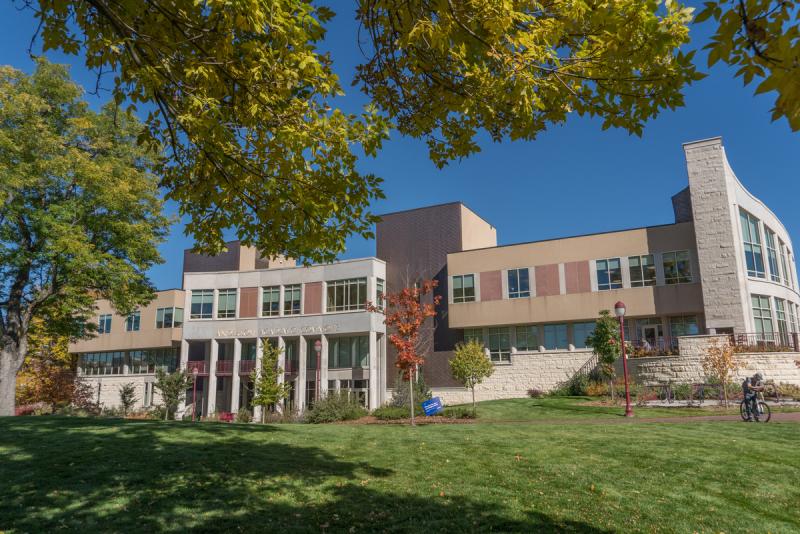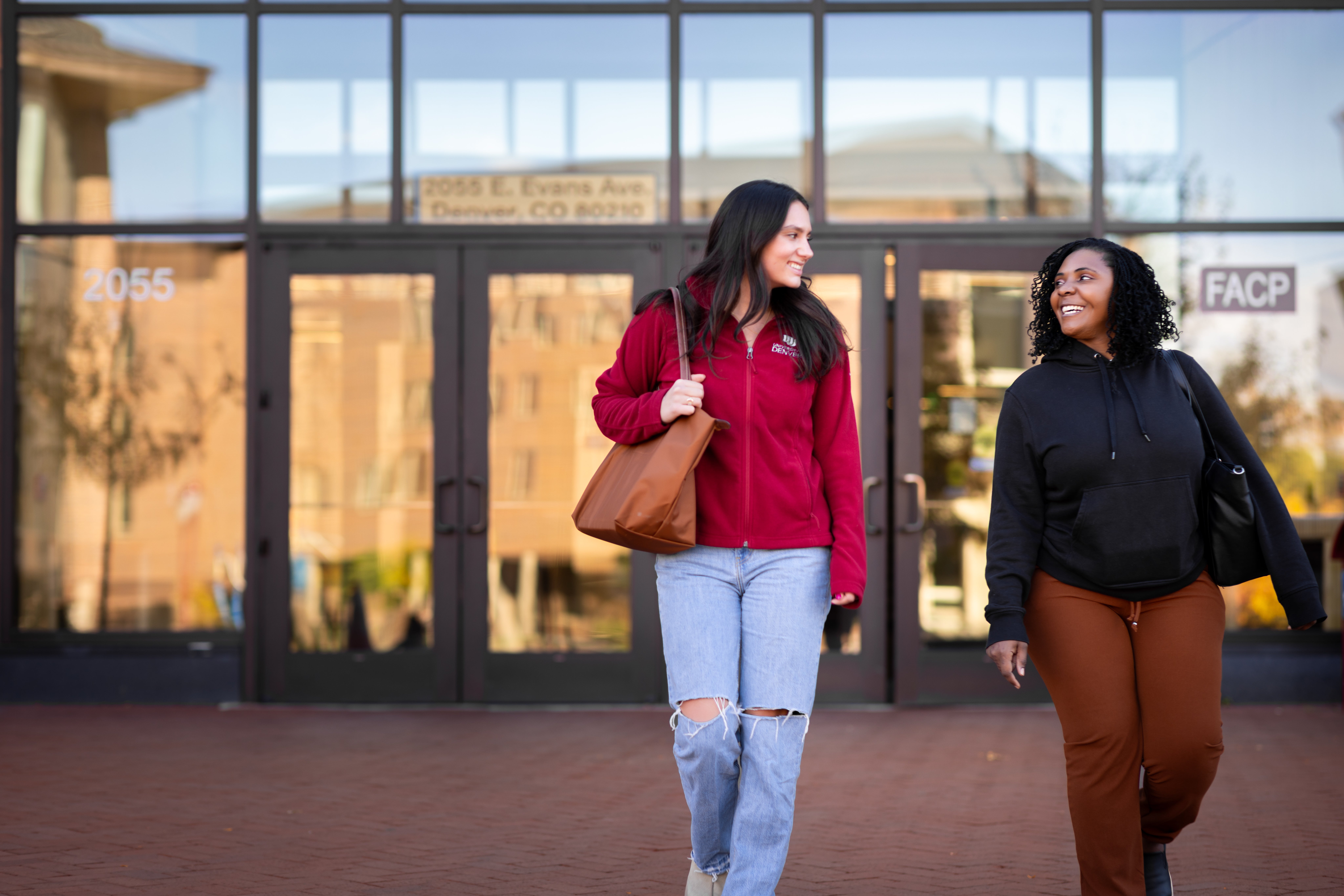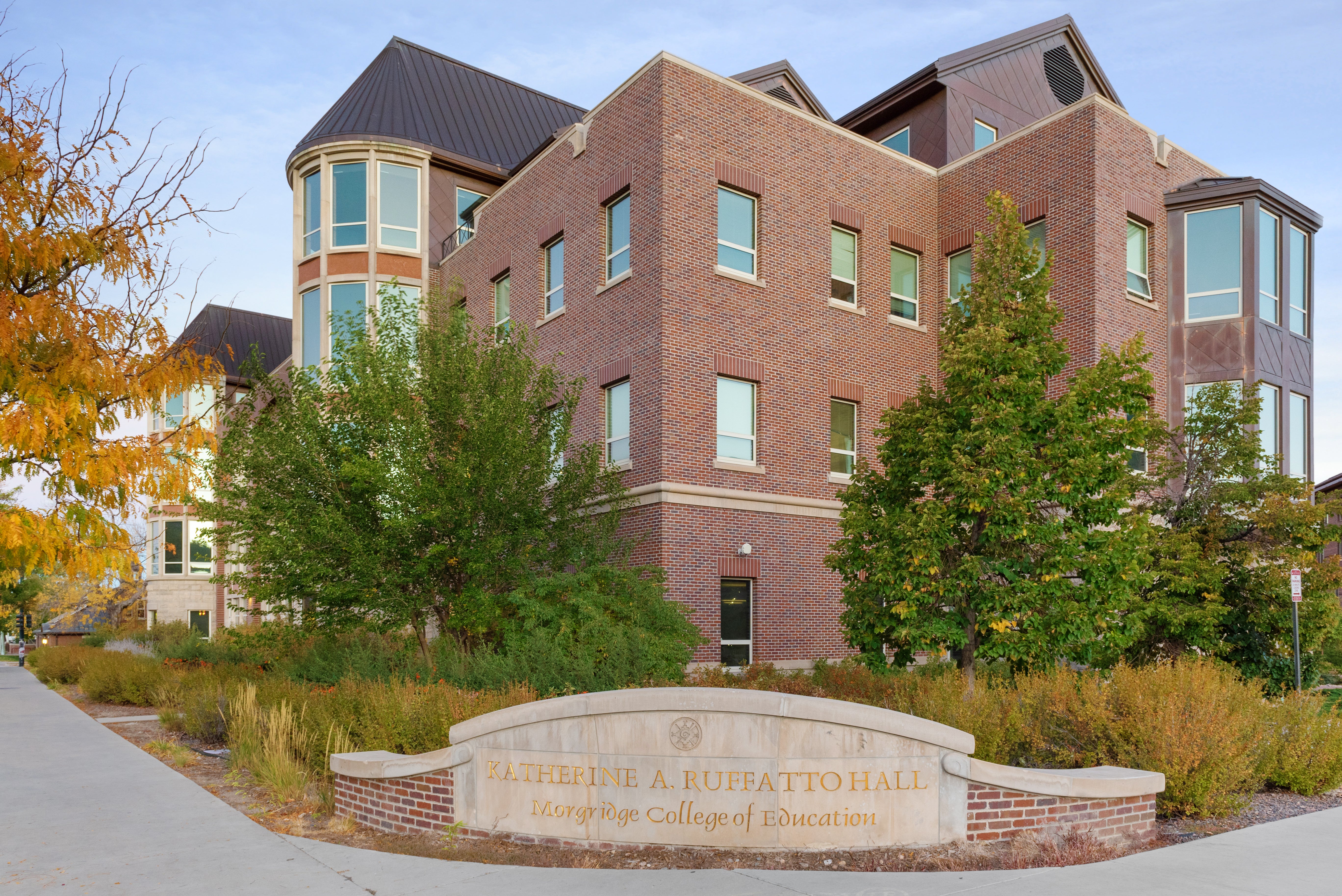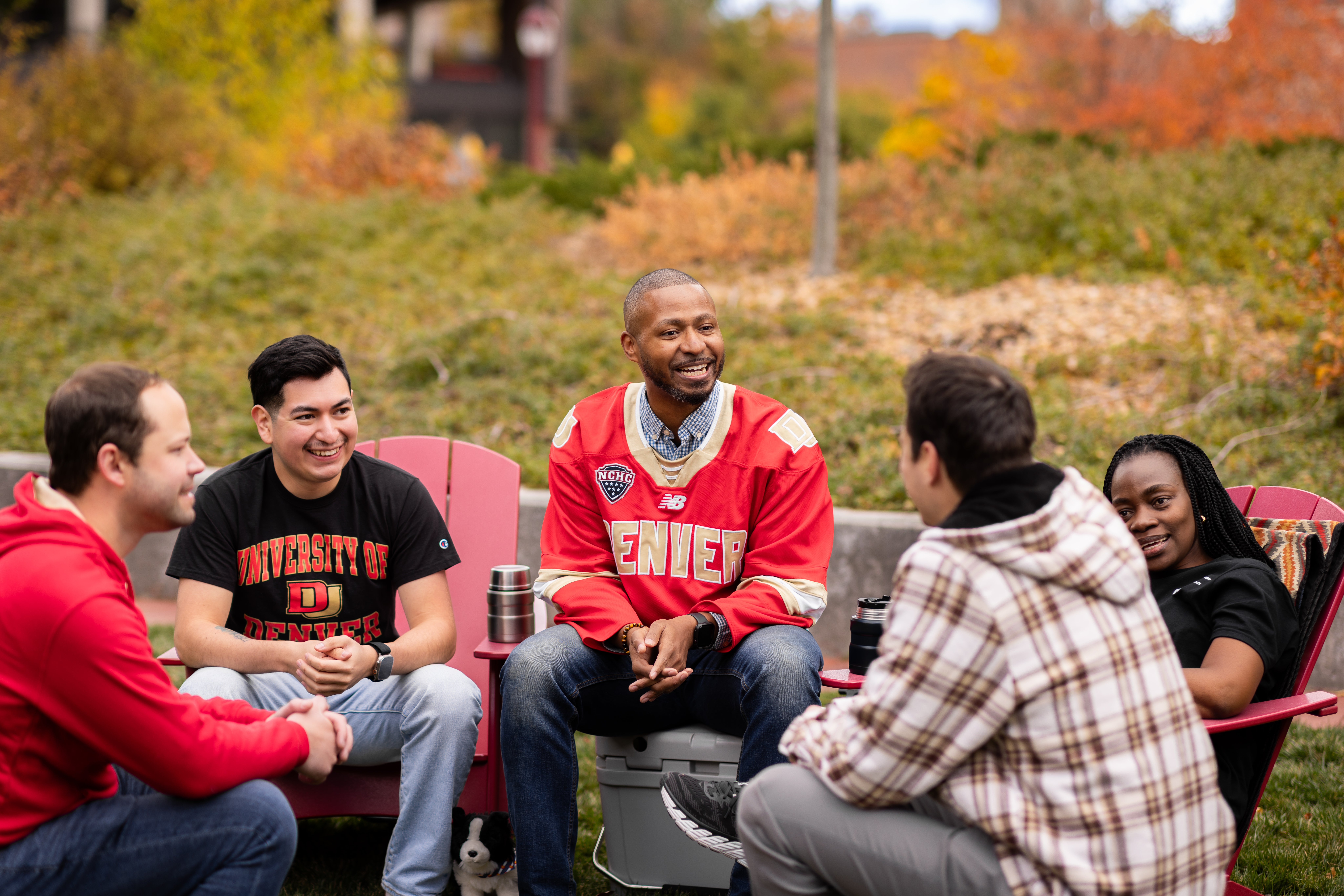Beyond the Stacks: The Evolving Role of Librarians
Graduates of DU’s MLIS program bring their skills to archives, classrooms, creative industries, and corporate spaces, shaping information and making a real-world impact.

In a world overflowing with information, librarians are more than keepers of books and knowledge—they’re guides who help us make sense of it all.
Pursuing a master’s degree in library information science (MLIS) at the University of Denver may sound like a traditional choice, but its impact is anything but. Today’s librarians shape how we access, organize, and understand knowledge across every kind of setting—from classrooms and archives to corporations and creative industries.
DU grad charts a new course as a modern librarian
Beth Mawhinney’s journey at DU began in 2020. After a decade working in social work and community mental health, she was looking for a change.
“I was looking for a space that would continue to allow me to use the soft skills that I had— attention to detail, prioritizing, change management, and managing information,” Mawhinney says.
After earning her MLIS degree in 2022, Mawhinney worked in a few special library settings. First, she worked as an archivist at the Mike Kelley Foundation for the Arts. The foundation maintains a collection of original papers and materials related to artist Mike Kelley's life and work.
Shifting to a more corporate setting, Mawhinney worked for TMZ's broadcast channel as an IT application projects and metadata manager, overseeing the company's digital asset management systems. She drew on the core principles of information architecture—which come from library science—to shape her work in user experience, usability testing, product design and more. It’s a reminder that librarianship extends far beyond the library walls.
“When we think about librarianship, we think about managing all the resources in a catalog or a system,” she says. “I think the most important part of that is the interaction between the person using the resource and the system that’s holding the resource—how is it displayed and interacted with?”
Mawhinney’s journey has come full circle. She’s now back at DU as a digital initiatives librarian, using her previous experiences to support departments across University Libraries. In this role, she helps develop tools that others use to streamline workflow and problems.
Bringing information to life on campus and beyond
Kate Crowe, curator of special collections and archives at University Libraries, has spent much of her life around academic libraries. Both of her parents worked in the field—her father was the dean of libraries at the University of Kansas, and her mother worked in academic libraries and what’s now called machine learning. Crowe watched as her parents dedicated their lives to an uncommon career, doing what they loved.
Now, as a curator and archivist, Crowe helps support DU faculty, students, and staff find and use current and historical information. One of her recent projects was helping design an observational research exercise—in this case, a historical photo scavenger hunt—for a writing class. Working in teams, students in the class will explore campus, engaging with historical materials and practicing interpreting visual information. This project gives them a hands-on introduction to research methods while fostering collaboration and a stronger connection to campus history.
“Librarianship is not just about books or managing data. Your goal is to add context, make sure there’s a data taxonomy, creating consistent and constant data,” Crowe says.
Contrary to popular stereotypes, librarians aren’t quiet bookworms hiding away in the stacks of books. They’re committed service-oriented professionals.
“You have to talk to people. You have to want to help people find what they need. I really hope people don’t think we read all day… although I wish I did,” Crowe laughs.
Whether you choose a more traditional route or explore a non-traditional one, libraries are everywhere. As information continues to grow at an exponential rate, it needs to be managed. And that means there are countless opportunities waiting to be discovered.
“When you go to library school, there are hard skills that you’re learning. But what you’re really doing is fine tuning a lens to look at and analyze information and to organize it meaningfully. It’s invaluable to businesses and organizations,” Mawhinney says.


